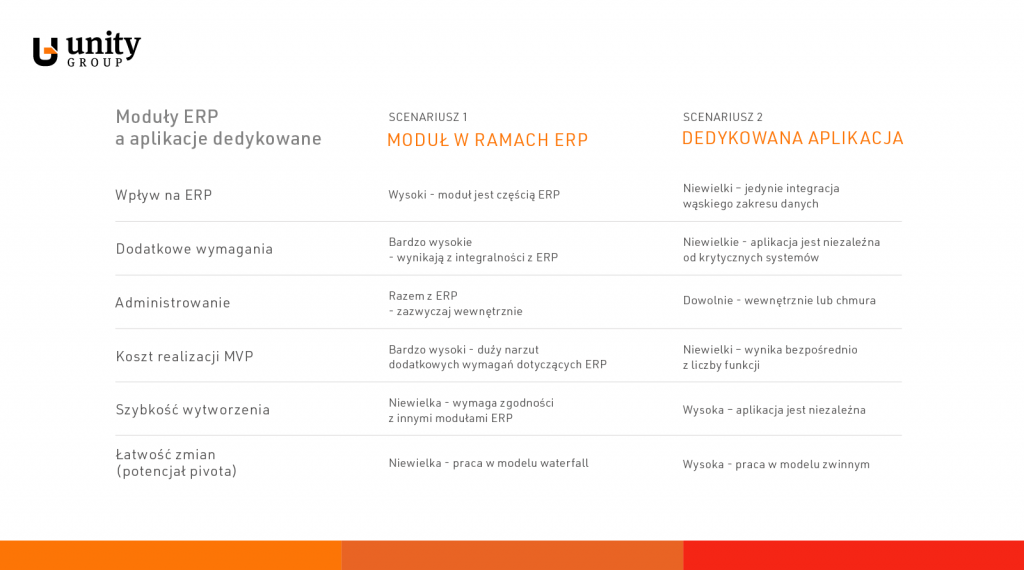How to Conduct Digital Transformation in Industry
The approach to running a business is changing continuously. Today, digital solutions are at the top. This can be seen in almost every industry. Companies change business models, redefine their products and change the way they communicate with customers. We are witnessing a digital transformation. The Polish economy is entering the next phase – the fourth era of industry, called industry 4.0. Now, let us think about this – what is digital transformation (DX), how important is it for the industry, and what IT solutions will work best?
What Is Digital Transformation? How Important Is It for the Industry?
Digital transformation is about integrating digital technology into all areas of the business, fundamentally changing the way we operate, and providing new solutions to customers. In other words, it is the next industrial revolution, which today enters a completely new phase – digitization. It is digitization that is the sign of our times. Companies in many industries are growing and changing their character right before our eyes. It is a process that requires organizations to deal with problems, change methodologies, and experiment – so as to act in a more effective and people-friendly way. This is the path many companies have chosen, predominantly in the financial, retail, and service industries. However, there are no restrictions in terms of the specific industry. Digital transformation strategy can be adopted by any company.
Digital transformation is happening before our eyes. Today, many companies are growing this way. You do not have to look far for examples. Today, everyone knows what streaming platform Netflix is – it is a perfect example of digital transformation. Few people know, however, that this company started in 1997 as a DVD movie rental service. What happened to the industry? Everyone knows – it died a natural death. Similar rental companies were failing overnight. Netflix, however, chose a revolution. Today’s popularity of its services is the best proof that digital transformation is a step in the right direction. People stopped using physical media, as digital distribution was introduced. Today, video streaming is in vogue and that is exactly what users expect – a convenient use of products in the digital age.
Netflix has proven that meeting customer expectations and evolving towards modern technology pays off. This is the digital transformation that for many companies is the only way to protect themselves from a crisis.
Why Do We Need Digital Transformation?
Digital transformation is not reserved for the largest companies only. In fact, these are the smallest businesses that can gain the most from this approach. Our world is becoming increasingly digital and, as consumers, we are used to this and expect even more. We expect it even faster and with easier access to services and products, quick contact with the service desk, and instant payments. For some companies, following these expectations and the direction towards digitization is the only way to survive and for others – a means to remain competitive.
Modern companies are already implementing innovative technologies. Others should consider doing so while it is not too late. However, you need to focus on how to effectively conduct the digital transformation. DX strategy is all about ideas and experimentation. It is about looking for a new path of development based on modern technologies and easy-to-use, lightweight applications that will be accessible to everyone. Finally, you need to be aware of the option of adjusting your course. If an idea is not working, the solutions are not quite what we expected, and the number of customers is not increasing, it is time to turn things around and make a pivot.
The fourth industrial revolution is quite different from the earlier ones. It does not fit into any business model and it is difficult to predict its course. It requires entrepreneurs to think innovatively and come up with new ideas. The development of new technologies can help with this. Artificial intelligence, robotics, cloud solutions, and the increasingly common deployment of applications and dedicated systems that are tailored to an organization’s needs.
What Difficulties Do We Face in Carrying Out Digital Transformation?
The world is moving forward and industry comes along with it. Both companies and customers benefit from this.
However, not everything is as beautiful as it may seem. Note that this is not a trivial issue. Many attempts at conducting a digital revolution fail. This is often the case as manufacturing companies translate their experience with ERP implementation into more IT systems. The main idea of digitization is to get a new system up and running as quickly as possible and verify if it brings value to the company. This contradicts the methodology and experience of implementing a manufacturing system, which is based on months of analyses.
A digital revolution based on bad decisions and a lack of skills related to course adjustment often lead to disaster. Such was the case of one of the largest German retail chains, which decided to implement a globally recognized ERP. The German company spent 7 years preparing for system implementation and paid ca. EUR 500 million for it. The ERP system was to manage the goods in all stores. In this case, due to the scale of the business, it was decided that the product should be changed and tailored to the needs of the company. The client’s employees filled surveys, participated in workshops, and communicated their needs during analyses.
Based on the collected information, a team of developers and consultants was tasked with changing a mature product and tailoring it to fit the client’s needs. It is hard to overestimate the difficulty of this task. Until now, the most popular ERP was implemented in a model where it was in fact the clients who adapted their processes to the system standards. In this case, unfortunately, the goals were not met. Introducing the changes was too time-consuming and problematic. The project was closed and the company returned to its proprietary solution, which was developed internally by the IT department of the chain store. The network continues to use a dedicated, internally written ERP system – a dedicated application.
Does implementation of a dedicated application pose a risk of similar magnitude as in the case described above? No, the answer is a modern approach to dedicated applications. The approach to implementing this type of solution is radically different from what manufacturing companies experienced when implementing ERP.
Tailor-made applications are not an alternative to ERP. Given a business problem to solve, manufacturing companies have two scenarios to choose from. Modifying or adding a new module to ERP or building a dedicated application. The first scenario brings a number of difficulties and risks resulting from the fact that we work on the most important system in the company. The alternative, implementing a dedicated application, only requires integration with ERP via API. We then focus on the business objectives and do not need to consider the range of requirements that relate to changes in ERP. By limiting the scope of work and focusing only on those functions that are key, the implementation of proprietary solutions allows ideas to be delivered quickly. This gives us a competitive edge. We also make sure that no other company copies our way of doing things.
What Are the Benefits of Implementing Dedicated Applications?
Undergoing digital transformation will be much easier and cheaper with dedicated applications, which have many advantages and their implementation is not as complicated as in the case of ERP modules.
While ERP is a complete system from the beginning and any modifications are very expensive and time-consuming, dedicated applications meet the client’s needs 100%. When it turns out that ERP implementation is difficult and takes time, dedicated applications give quick and observable results after just a few weeks. While, with a planned ERP implementation, you cannot make changes, dedicated applications allow you to change the scope of work smoothly without risking higher costs.
By choosing dedicated solutions, a company gets tailor-made applications. This is well known to the promoters of the digital transformation strategy, which assumes the use of lightweight software (usually web-based) that is independent of the ERP system and does not require connection to heavy software, easily exchanges data (API) with other systems, and uses common technologies, which minimizes maintenance costs. ERP systems are present in every manufacturing company. Dedicated applications allow you to continue to grow and take a step into the future. Today is the time of the so-called tailored applications – applications fully tailored to the specific enterprise, which concern a selected process and thanks to that fact allow faster and cheaper implementation.

Summary
Digital transformation (DX) is a strategy that relies on new technologies. It is about the ability to use them and to take such a path of development that will meet the requirements of today’s clients. This is often the only chance for companies that need to grow in order not to disappear from the industrial map of the world. A good way to survive will be to increase competitiveness, by implementing dedicated solutions and applications that not only favor modification, for example, but are also cheap to maintain and develop.
If you found this article interesting, we encourage you to read our offer and other publications about digital transformation.








